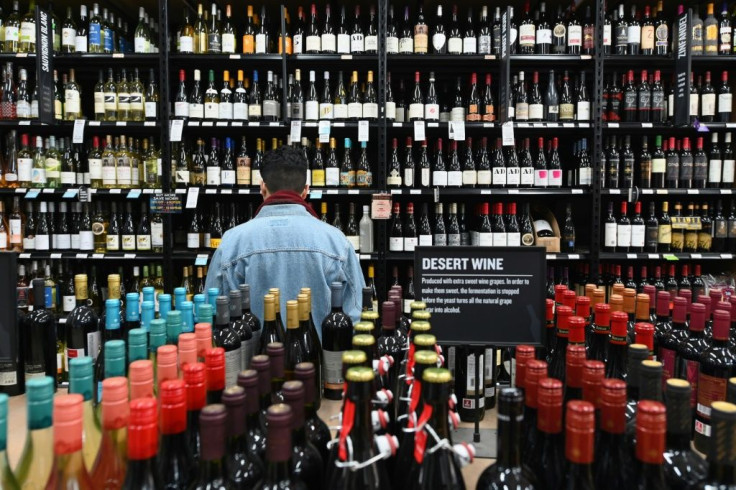Good Businesses To Start During COVID-19

At first glance, considering starting a new business during an economic downturn like that caused by COVID-19 may seem crazy. However, if you've always felt an entrepreneurial itch, the current combination of changing economic conditions-and a new reality of working that imposes different constraints on your time-can actually present a unique opportunity.
While the current pandemic's impact has been especially brutal, economic downturns are part of normal economic cycles, and they are inevitable. During these recessionary events, some businesses have fared better than others. In fact, some small businesses and industries are actually more profitable when the economy is down.
And the coronavirus-caused shift in work habits and workplaces may also help. More employers are considering the benefits of allowing employees to work remotely as long as it's practical--or even indefinitely. By alleviating a long commute, this could save employees time, and this time could be spent investing in an entrepreneurial venture. Perhaps that side hustle that you've always pushed to the (literal) side of the table as you reported to your 9-5 job seems more appealing now that you don't have to schlep to a corporate office.
Here are some of your best bets as an entrepreneur during an economic downturn.
Beer, Wine, and Liquor
While people may be unable to patronize restaurants or bars, they are unlikely to stop drinking altogether, even when times are tough. Especially during stressful times, people may have more of a tendency to want to unwind with a glass of wine, and purchasing alcohol to keep in your home is less expensive than dining or eating out options.
The market research firm Nielsen reported that U.S. sales of alcoholic beverages rose 55% in the week ending March 21, 2020. Sales of spirits, like tequila, gin, and pre-mixed cocktails, came out on top, with sales jumping 75% compared to the same period last year.
For entrepreneurs considering opening a business in this industry, online sales of alcohol seem especially promising. According to Nielsen, online alcohol sales were up 243% in the same time period. Many existing wine and liquor stores and distributors are exploring different ways to adapt to changing economic conditions, including offering delivery services or curbside pickup.
Sweet Treats
Chocolate and candy can also be a comfort during times of considerable economic stress. Sugar lifts the spirits, at least for a little bit. And while people may cut back on gourmet groceries, candy is an affordable luxury--and candy-making being a recession-proof industry.
In fact, during the 2009-09 financial crisis, candy makers, store owners, and industry experts in the U.S. reported that their sales were up. According to public filings, Cadbury reported a 30% rise in profits for 2008; Nestle's profits grew by 10.9% percent in 2008. According to Peter Liebhold, curator in the Division of Work and Industry at the Smithsonian's National Museum of American History, major candy companies stayed in business and even flourished during the Great Depression. in fact, Hershey's financed its own work program for the unemployed during the 1930s because it was able to maintain a high level of profitability.
Tattoos
As tattoos have become more accepted in mainstream culture--and no longer taboo in workplaces and even corporate offices and workplaces, more people have taken the plunge and gotten inked. Nearly four in 10 people born after 1980 have a tattoo, according to a Pew Research Center report from 2017, and this trend doesn't seem to be slowing.
Tattoo shops also have the flexibility of working with only one client at a time for safety, and with the proper licensing-as long as you are following state regulations governing tattooing-it may be legal to set up a tattoo shop in your own home, offering even more freedom to entrepreneurs.
Toiletries
A pedicure in a nail salon may be out of reach for a time, or become unaffordable. And women who aren't stepping out aren't likely to be wearing lots of make-up. On the other hand, people who are forced to spend more time at home may be more inclined to indulge in rituals of self-care, like bubble baths, face peels, and do-it-yourself gel manicures. But small toiletries can be an alternative.
In fact, during the last recession in the U.S., nail polish sales soared. Prior to that, in 2001, Leonard Lauder, the then-chairman of Est?e Lauder, observed that lipstick sales tend to be inversely correlated to economic health. He coined this phenomenon the "Lipstick Effect." While lipstick sales, specifically, did not withstand the Great Recession (and likely not to do well in our current mask-wearing society) there is still evidence that luxury toiletries, like designer nail polish and skincare products, are recessionary-proof.
Since economic downturns of various consequences are inevitable, people and businesses that are able to adapt to changing economic circumstances have a better chance of thriving when business is good again (and when it's bad again). Some people might even tell you that the best time to start a business is during a downturn.
The Bottom Line
If you're considering chasing your pipe dream of becoming an entrepreneur for the first time, you can do so with the confidence that some types of businesses have a proven track record of being profitable despite bad times--or perhaps because of them.
© Copyright IBTimes 2024. All rights reserved.





















